For Dorothy Christie, heading to the berry fields of Blairgowrie in 1943 wasn’t so much a choice but an expected contribution to the war effort.
She and her classmates picked raspberries alongside Italian prisoners of war at Wester Essendy Farm.
“I think we stayed at the Balhary prisoner of war camp just outside Alyth,” she recalls.
“We were transported to the farm every day. The camp held Italian prisoners – we lived in their huts and they moved into tents.”
Dorothy, now 96, was born Dorothy Duncan in Bridge of Cally in 1928. She lived in Perthshire with her mother, father and older brother Jack, now 98, before moving to Dundee early in the Second World War.
She still lives independently, now in Auchterarder, and has three sons. Husband Bob Christie died in 2000.
A season in the berry fields didn’t seem to be optional for Dorothy and her pals. “I suppose our parents must have given permission, but I can’t recall having any say in the matter!,” she says.
“All the girls in my class went off together. I don’t think anyone didn’t go. We went with two of our teachers, Miss Kirk and Miss Beveridge.
“I remember Miss Beveridge, our English teacher, was much less formal out in the fields than she was at school.”
Rough and ready summer job accommodation
The Harris Academy schoolgirls were aged around 15 when they worked on Wester Essendy Farm alongside the war prisoners.
She remembers: “The Italians were cheerful. I had the impression they were happier working on the farms than still being in the war.”
She does point out that they were “quite forward, whistling at us girls, and making comments and laughing as we passed by”.
“We didn’t understand them. Maybe that’s just as well!
“I particularly remember the smell of their Brilliantine hair oil.”
According to Dorothy, the accommodation where they slept after a hard day in the fields was “basic, very basic”!
“It would have complied with the Geneva Convention for prisoners of war, but modern teenagers would struggle,” she laughs.
“There were no toilets or washing facilities in our huts. It was a long walk to the latrines and washhouse.
“The beds didn’t have mattresses. We had palliasses instead, just bags filled with straw. They were lumpy and uncomfortable, but I didn’t have any problems sleeping. We were always so tired.”
Having grown up in the countryside, Dorothy found the farm work tough but was more used to manual work than the girls who had always lived in Dundee.
“I was a country girl and had been used to picking berries and potatoes from the age of about four.
“The other girls were real city girls, and it was harder for some of them.”
Summer job camaraderie
She wasn’t tempted back to the berries in future summers.
“I don’t have fond memories of the berry picking,” she says frankly but reflects: “The best bit was being away from home with friends. We all got on well together.
“I particularly remember Marion Miller, who became a doctor, and Marion MacGregor. I was closest to them. It was a happy time for us.
“We were a very lively bunch. I’ll just leave it at that!” she adds with a smile.
Tickets please! Memories of a summer holiday job in Arbroath
For Arbroath born and bred Hilary Roberts (nee Tasker), a summer holiday job on the town’s new tourist land train helped fund her university studies and made lifelong memories.
Hilary, 50, was conductor for the train’s first season in 1994, driving visitors and locals round the sights of Arbroath.
The train was launched as part of the redevelopment of the West Links, running from the links to the harbour.
Hilary remembers that that summer was particularly busy. “We were jam-packed,” she says.
In at the deep end on the land train
She doesn’t recall getting any particular training before she started. “I think it was more, ‘here’s how to work the ticket machine, now off you go!'” she reflects.
“I think it was 50p for a single and £1 return for the trip. There was a driver at the front of the train and I was always at the back to keep an eye that everyone was safe.”
The summer of 1994 was a good one and Hilary loved working outside and meeting lots of people.
If the weather was very wet the train didn’t run and she remembers that was a double hit on her salary: “We didn’t get paid when the train didn’t run and we just went and spent all our wages in the pub!” she laughs.
Many of her passengers were visitors from the west coast and she got to know some of them well over the two summers she worked there.
“The photo of me with the train was taken by an older lady from the west coast; she came every year and she stayed in a wee B&B or guesthouse,” she says.
“She took photographs and took my address and sent me that photograph with a really lovely letter about how much she enjoyed coming to Arbroath and enjoyed going on the road train.”
She had the odd awkward customer including one who gave her a row for not looking after her child, but she says that those occasions were very rare.
“She left her child to get the road train while she walked back along the road but there was no room on board for them on the train and I got into a lot of trouble from her for not looking after her child!”
She also had a few special passengers who had a tailored service.
“My dad’s friends used to go to the football at Gayfield and the road train passed the football ground; they went to a pub called the Smugglers down at the harbour before the games,” says Hilary, laughing at the memory.
Personal service on the Arbroath land train
“So these three guys used to sit in the window at Smugglers and wait for the road train.
“I used to give them a wave then they would come scurrying along, get on the train and I would drop them right outside Gayfield for the football – and I didn’t charge them!”
“We’d even get the passengers singing sometimes, we had a stereo on the train and we used to play things like the the soundtrack from The Commitments, especially on days when we weren’t very busy.”
Hilary, who still lives in Arbroath, now works with Welcome to Fife. She says that although the land train job didn’t lead directly to a career in the tourist industry, the experience certainly stood her in good stead.
“It was brilliant for developing those people skills and dealing with lots of different people,” she points out. “It was a great group of people and we all worked together and socialised together and it was just a great laugh!”
Summer fun for staff and visitors at Craigtoun Country Park
Over in Fife, Elliot Comerford, 20, is dodging the raindrops for his fourth summer as a seasonal assistant at Craigtoun Country Park outside St Andrews.
Elliot, a past pupil of Bell Baxter High School, grew up in Balmullo and now studies environmental science at university.
His older brother Jack was working at Craigtoun when Elliot says he went for an ice cream, met park manager Paul and asked him for a job.
That was in 2021 and Elliot says that the park attractions have come on leaps and bounds since then.
Having been abandoned by Fife Council in the early 2000s, the park was in a very neglected state until the charity Friends of Craigtoun was established in 2012.
Since then, many of the traditional attractions have been reinstated and the park enjoys increasing visitor numbers year on year.
Childhood memories at Craigtoun Park
“Most of the staff came here as visitors when they were kids,” Elliot says of the park that was a summer mainstay for families and school and Sunday school trips for decades.
“One of the guys who worked here when I started used to joke that we would have been on the train when he was driving it when we were kids.
“And we actually did find photos of us on the train when he was driving it – I was about four!” he exclaims.
“Now when parents say, ‘give the ticket to the man’ to their children, I can remember my own parents saying the same thing to me, which is a bit surreal.”
Four seasons in, Elliot’s job has developed into a more overarching role where he might be doing anything from helping on the boats, to riding on back of the miniature train or handing out clubs for crazy golf.
The perfect summer holiday job?
He is sometimes duty manager, working alongside paid seasonal employees and a dedicated team of volunteers for Friends of Craigtoun.
The gardens are kept looking their best by a separate group of volunteers who Elliot describes as Craigtoun’s ‘unsung heroes’.
“There are really no bad jobs,” he enthuses. “I do enjoy emptying the bins,” he laughs, “it’s fun keeping the place clean, honestly! And you get to explore areas of the park that you wouldn’t see otherwise.
“Sometimes you do look around and think ‘how am I getting paid for this?'”
Elliot Comerford, Friends of Craigtoun
He particularly enjoys the fact that he is working outside, that the season fits in well with university terms and that the public-facing role has done wonders for his self-confidence.
“I think everyone who works here says this,” he explains. “In your first week here you are kind of terrified of every customer and then eventually you stop really minding and find it’s quite easy.
“That development of social skills is a huge thing. By the time you leave you will find that you can talk to anyone!”
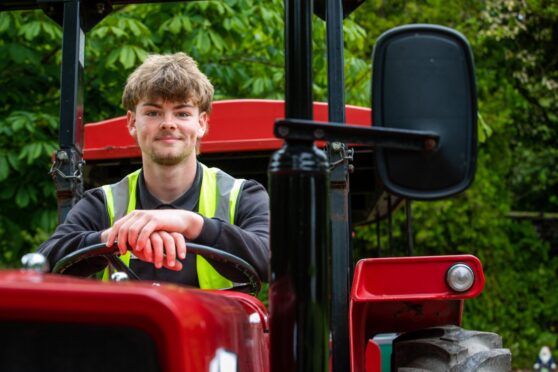
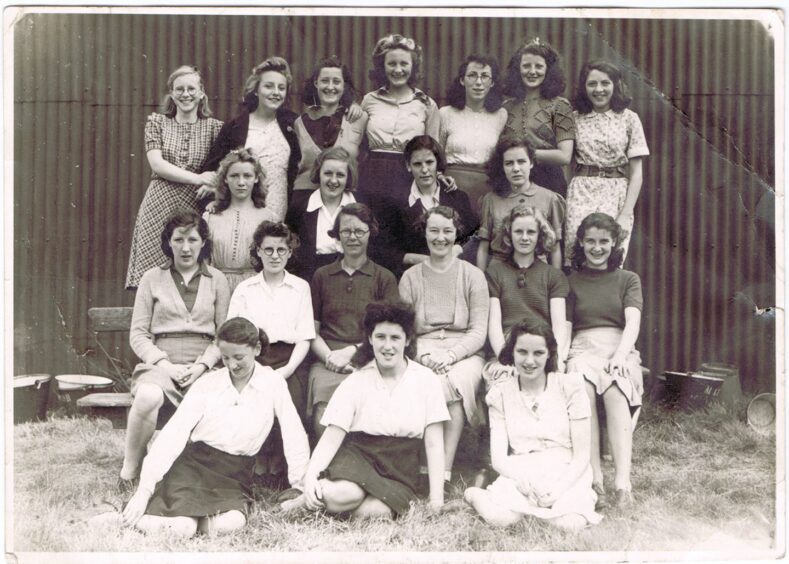
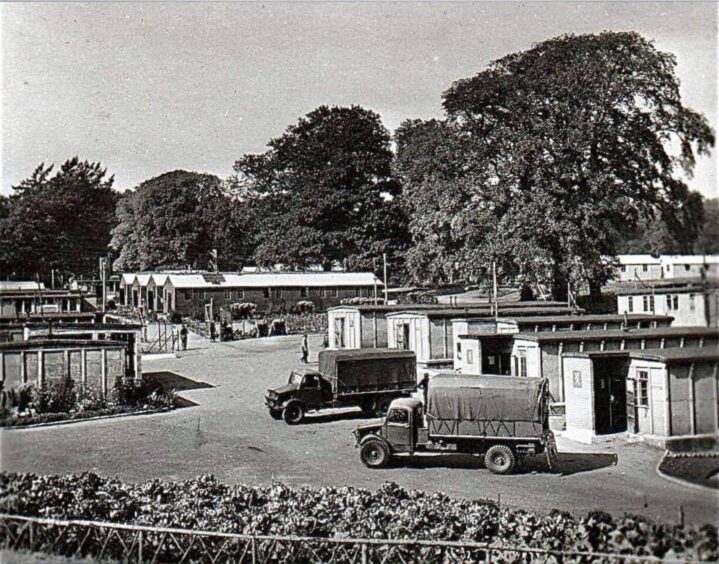
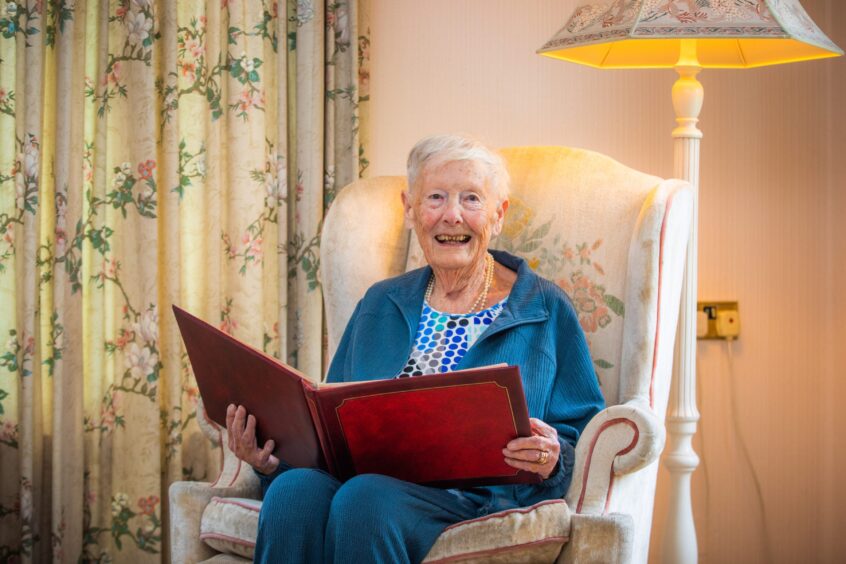
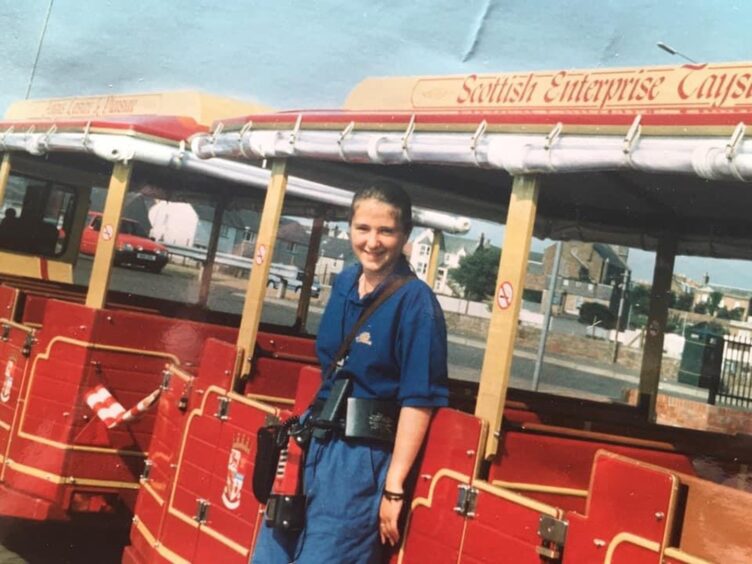

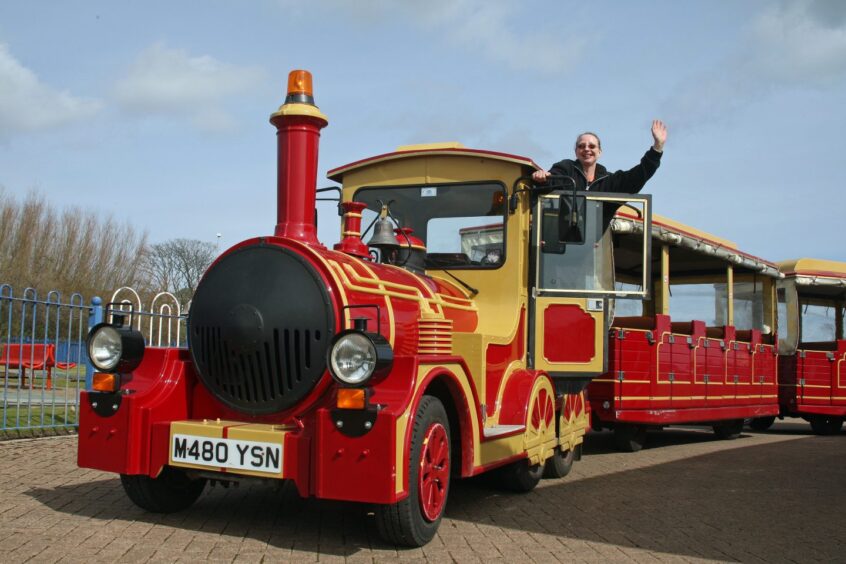
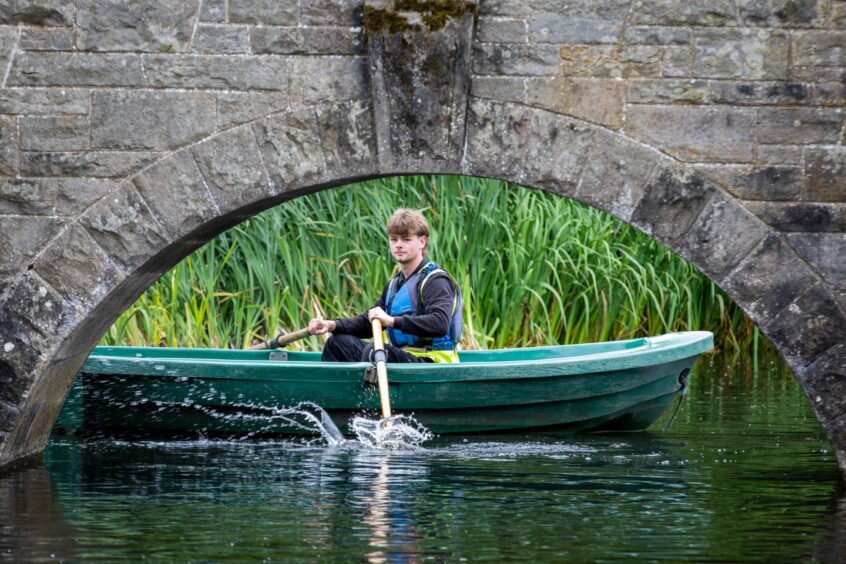
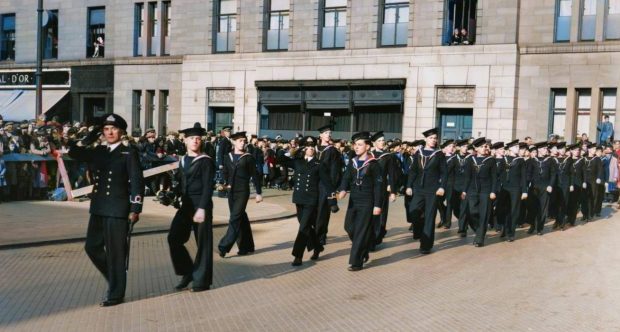
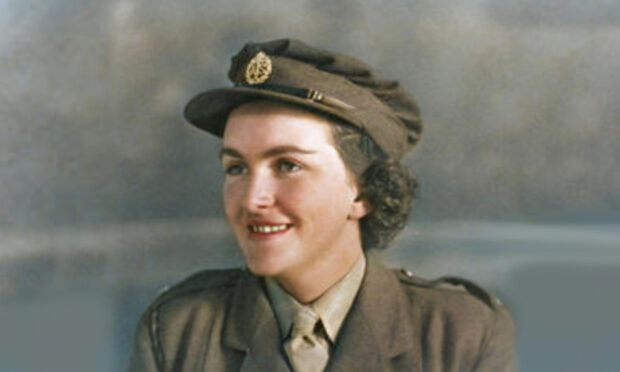


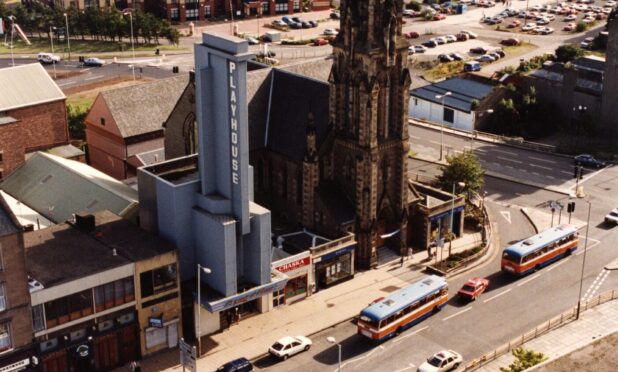
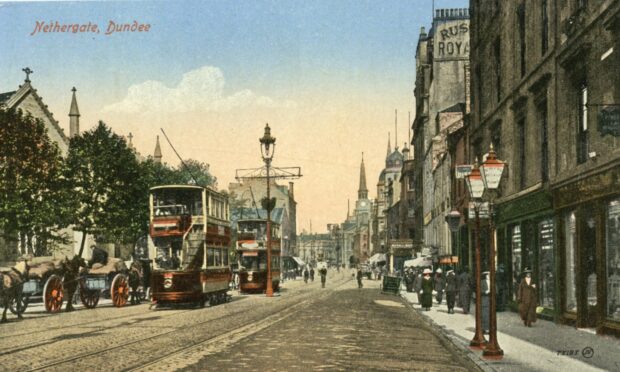




Conversation